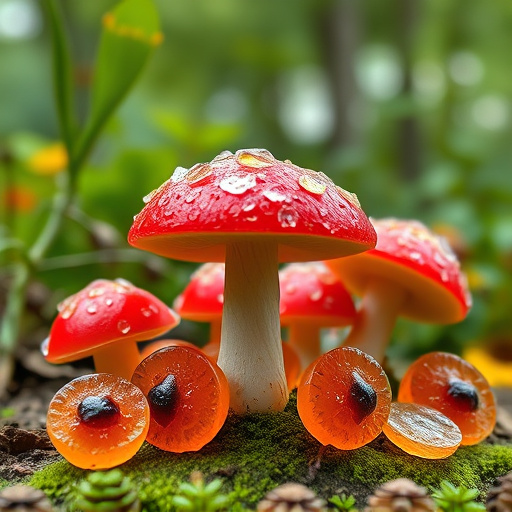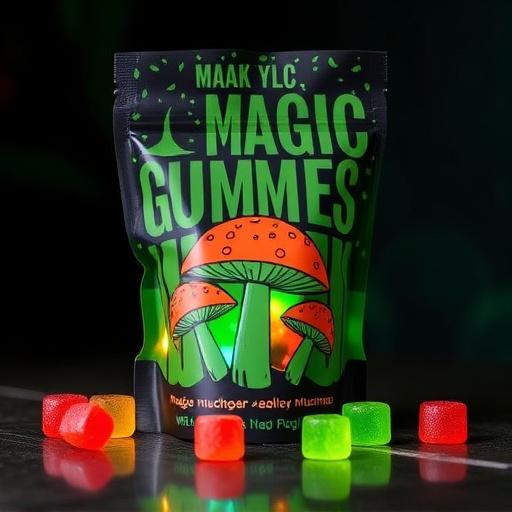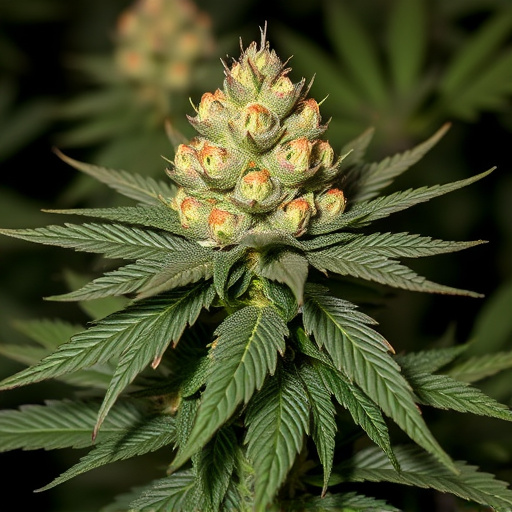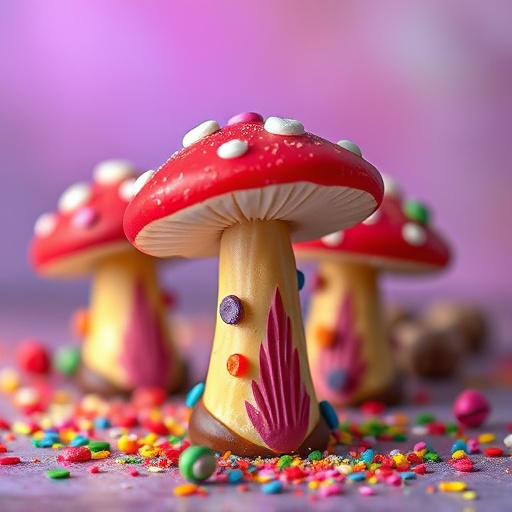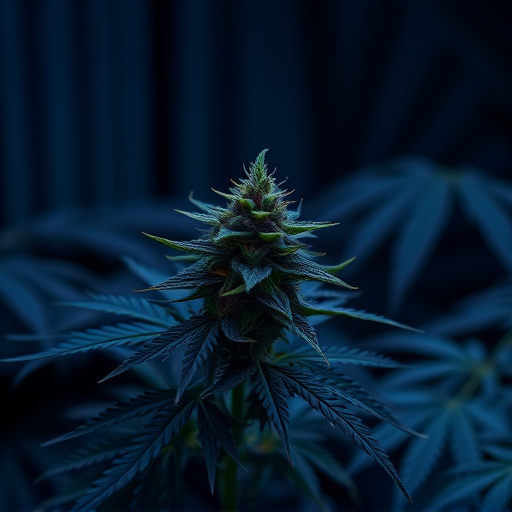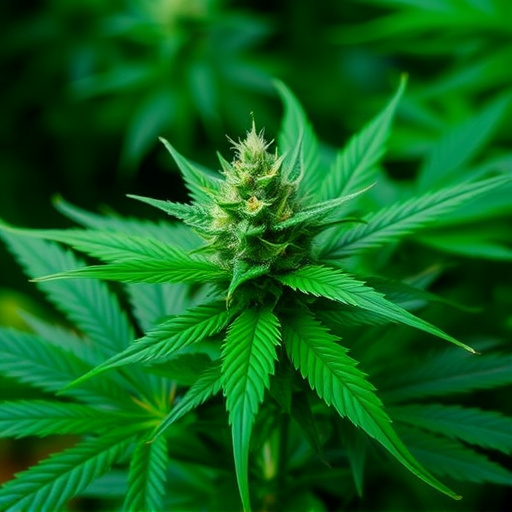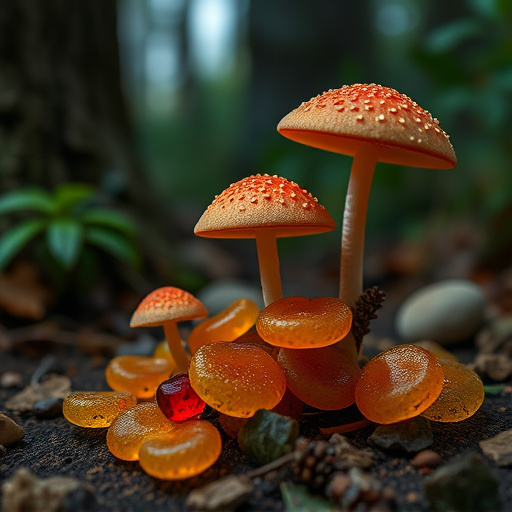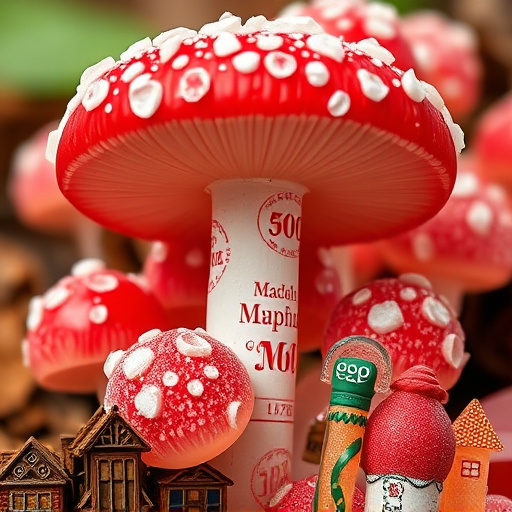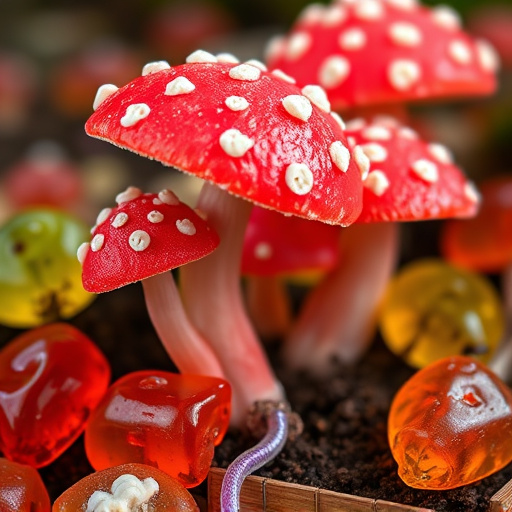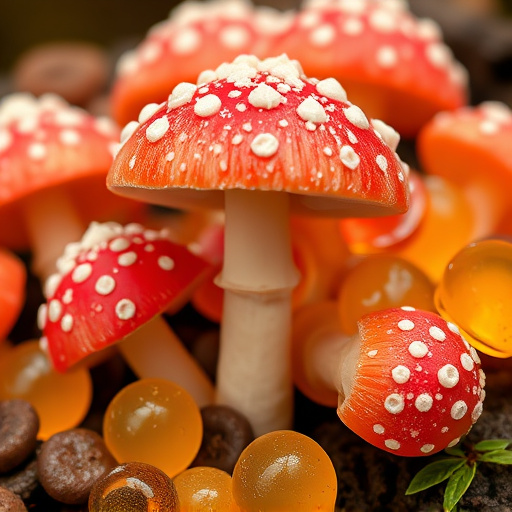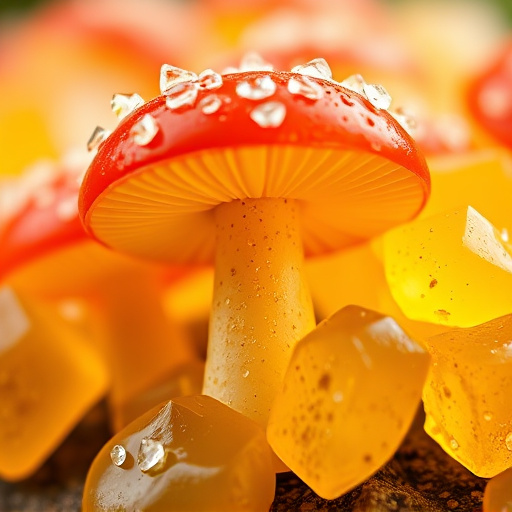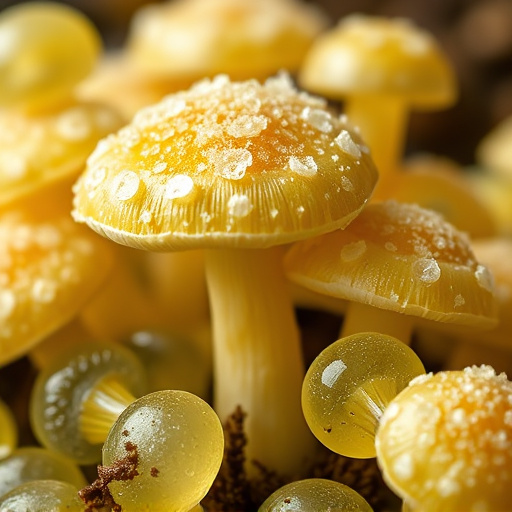Magic mushroom gummies, while gaining popularity as an alternative anxiety treatment, are shrouded by myths about their safety and effectiveness. Unlike recreational use, scientific research suggests they may help process emotions through altered brain chemistry. However, "bad trips," side effects like nausea and hallucinations, and variable legal status create significant challenges. Without robust clinical trials, healthcare professionals advise caution and stress the importance of dispel[ing] myths about Magic Mushroom Gummies for anxiety relief, encouraging informed decision-making under professional guidance.
“Unraveling the potential of magic mushroom gummies as an anxiety relief tool has sparked both intrigue and skepticism. This innovative approach blends ancient psychedelics with modern confectionery, leading many to question its efficacy and safety. In this article, we debunk common myths about magic mushroom gummies for anxiety while exploring their mechanism of action, potential benefits, and essential safety considerations. Let’s navigate this fascinating topic with an open mind.”
- What Are Magic Mushroom Gummies and How Do They Work?
- Debunking Common Myths About Magic Mushroom Gummies for Anxiety
- Exploring the Potential Benefits and Safety Considerations
What Are Magic Mushroom Gummies and How Do They Work?
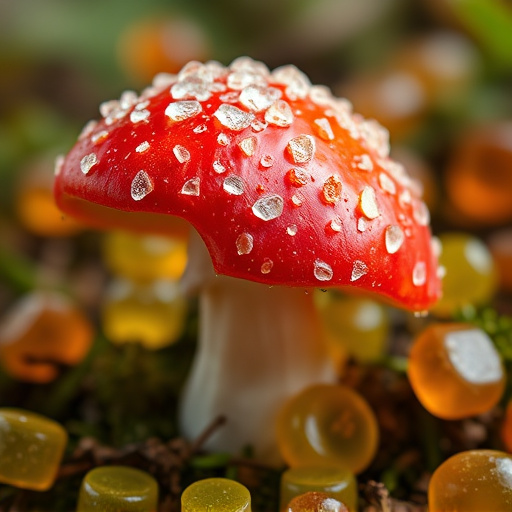
Magic mushroom gummies are edible cannabis products infused with psilocybin, a compound found in certain types of mushrooms known as magic or psychedelic mushrooms. These gummies are designed to mimic the effects of traditional psychedelic experiences but in a more controlled and manageable dose. When consumed, psilocybin converts into psilocin in the body, which interacts with serotonin receptors, leading to altered perceptions, heightened sensory awareness, and changes in mood.
Contrary to popular belief, magic mushroom gummies are not simply for recreational use. They have gained attention in the mental health field as a potential tool for anxiety relief and other psychological conditions. Research suggests that psilocybin-assisted therapy can help reduce symptoms of anxiety, depression, and post-traumatic stress disorder (PTSD). The effects of these gummies are often described as profound self-reflection, emotional processing, and a sense of detachment from anxious thoughts, offering a unique perspective that may aid in healing. However, it’s essential to approach this topic with caution, as the use of psychedelic substances still carries certain risks and should be done under professional supervision.
Debunking Common Myths About Magic Mushroom Gummies for Anxiety
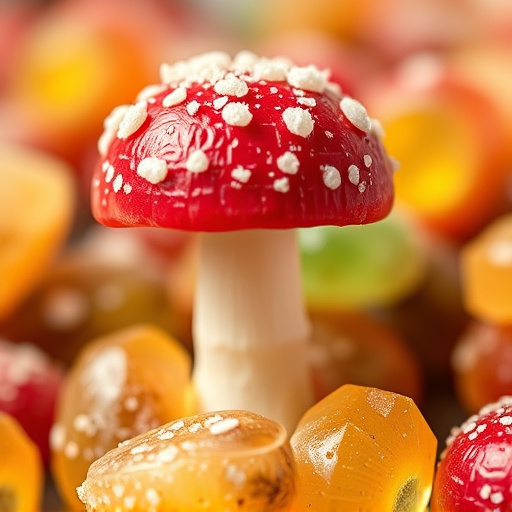
Magic mushroom gummies have gained attention as a potential treatment for anxiety, but they come with their share of myths and misconceptions. Many believe that these edibles offer a quick fix or a magical solution to anxiety, which is far from the truth. The effectiveness of magic mushrooms for anxiety relief lies in their ability to alter brain chemistry and promote psychological insights, not in providing an immediate cure.
One common myth is that consuming magic mushroom gummies will lead to intense, unpredictable experiences, often associated with “bad trips.” However, these experiences are highly variable and depend on various factors such as dosage, set (mental state), and environment. With proper guidance and a controlled setting, many users report profound and therapeutic experiences. Another misconception is that these gummies are a legal alternative to prescription anxiety medication. While some regions have legalized psilocybin mushrooms for medicinal use, magic mushroom gummies derived from synthetic or natural sources may still fall under regulatory restrictions, making them an informal and potentially risky option for those seeking anxiety relief.
Exploring the Potential Benefits and Safety Considerations
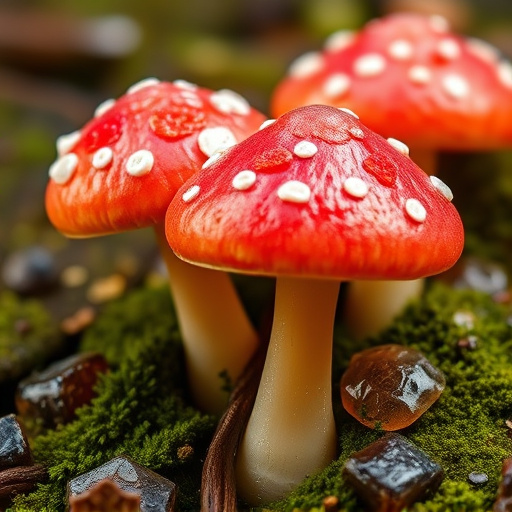
Exploring the potential benefits and safety considerations of magic mushroom gummies for anxiety relief involves delving into a complex landscape. While anecdotal evidence suggests their efficacy, scientific research remains limited. Many believe that the active compounds in magic mushrooms, such as psilocybin, can help reduce anxiety symptoms through altered states of consciousness and neuroplasticity promotion. However, these claims are often shrouded in myths about magic mushroom gummies, including ideas about their magical properties and immediate results.
Safety is a paramount concern when considering any alternative treatment. Magic mushroom gummies may cause side effects like nausea, paranoia, or hallucinations, especially in high doses. Moreover, their legal status varies across regions, making it crucial to understand local regulations. Without robust clinical trials, the long-term effects remain unknown, leaving healthcare professionals cautious about recommending them as a primary anxiety treatment. Thus, it’s essential to approach magic mushroom gummies with informed skepticism, relying on professional medical advice rather than solely on myths or personal experiences.
Magic mushroom gummies have sparked interest as a potential anxiety relief tool, but it’s crucial to approach this alternative remedy with caution. While early research suggests promise, debunking common myths is essential. The effects can vary greatly among individuals, and more studies are needed to fully understand their safety and efficacy. Always consult a healthcare professional before trying any new supplement, especially one as complex as psychedelic gummies, to ensure informed decision-making in light of your unique circumstances.
